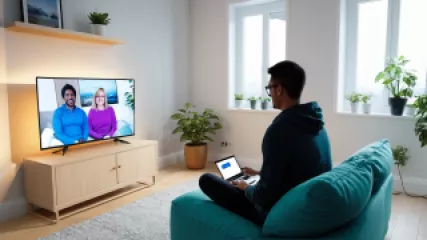Effective Virtual Therapy Solutions for Mental Fatigue
Introduction
Mental fatigue is a common issue that many people face in today's fast-paced world. The constant demands of work, personal life, and the digital age can leave us feeling mentally drained and overwhelmed. Fortunately, there are effective virtual therapy solutions available to help alleviate mental fatigue and promote holistic mental health.
Understanding Mental Fatigue
Mental fatigue, also known as cognitive fatigue, refers to a state of mental exhaustion characterized by decreased concentration, reduced focus, and impaired cognitive function. It can result from prolonged periods of stress, excessive multitasking, information overload, and lack of proper self-care.
Mental fatigue can have a detrimental impact on our overall well-being, affecting our productivity, decision-making abilities, and emotional stability. Recognizing the signs of mental fatigue is crucial for seeking appropriate support and implementing effective strategies for mental clarity.
The Rise of Virtual Therapy
In recent years, virtual therapy has gained significant popularity as a convenient and accessible solution for mental health support. Virtual therapy, also known as online therapy or teletherapy, involves receiving therapy services through video calls, phone calls, or text-based platforms.
Virtual therapy provides individuals with a flexible and comfortable way to access professional mental health support from the comfort of their own homes. It eliminates barriers such as geographical limitations, transportation issues, and scheduling conflicts, making therapy more accessible to a wider range of people.
The Benefits of Virtual Therapy for Mental Fatigue
Virtual therapy offers several benefits specific to addressing mental fatigue:
- Convenience: Virtual therapy allows individuals to schedule sessions at their convenience, eliminating the need for travel time and providing more flexibility for busy schedules.
- Accessibility: With virtual therapy, individuals can access therapy services regardless of their location, making it particularly beneficial for those in rural areas or areas with limited mental health resources.
- Comfort: Engaging in therapy from the comfort of one's own home can create a safe and relaxed environment, facilitating open and honest communication.
- Anonymity: Virtual therapy offers a certain level of anonymity, which can be comforting for individuals who may feel hesitant about seeking therapy due to stigma or privacy concerns.
- Continuity of care: Virtual therapy allows individuals to maintain consistent therapy sessions even when facing travel restrictions, illness, or other disruptions.
Effective Strategies for Virtual Therapy
When engaging in virtual therapy to address mental fatigue, there are several effective strategies that can enhance the experience and maximize its benefits:
1. Find the Right Therapist
Take the time to research and find a therapist who specializes in treating mental fatigue or related concerns. Look for professionals who have experience providing virtual therapy and have positive reviews from previous clients.
2. Establish a Routine
Create a regular schedule for virtual therapy sessions to establish a sense of structure and consistency. Having a routine will help you prioritize your mental health and ensure that therapy becomes an integral part of your self-care routine.
3. Create a Comfortable Space
Designate a quiet and comfortable space in your home where you can engage in therapy sessions without distractions. Set up your environment in a way that promotes relaxation and focus.
4. Take Advantage of Technology
Utilize technology tools such as video conferencing platforms, secure messaging apps, and therapy-specific applications to enhance your virtual therapy experience. These tools can facilitate communication, provide additional resources, and streamline the therapy process.
5. Practice Self-Care
Engage in self-care activities outside of therapy sessions to support your mental well-being. This may include practicing mindfulness, exercising regularly, maintaining a healthy diet, getting enough sleep, and engaging in hobbies or activities that bring you joy.
6. Set Goals and Track Progress
Work with your therapist to set specific goals for therapy and track your progress over time. This will help you stay motivated, measure your improvement, and celebrate your achievements along the way.
7. Implement Cognitive Behavioral Techniques
Cognitive Behavioral Therapy (CBT) is a widely used therapeutic approach for addressing mental fatigue. Your therapist can guide you through CBT techniques such as identifying negative thought patterns, reframing beliefs, and implementing coping strategies to manage mental fatigue effectively.
Conclusion
Virtual therapy provides an effective solution for addressing mental fatigue and promoting holistic mental health. By utilizing the benefits of virtual therapy, finding the right therapist, establishing a routine, creating a comfortable space, leveraging technology, practicing self-care, setting goals, and implementing cognitive behavioral techniques, individuals can experience the positive impact of virtual therapy on their mental well-being.
Remember, seeking support for mental fatigue is a proactive step towards improving your overall quality of life. Take advantage of the virtual therapy solutions available and embark on a journey towards mental clarity and well-being.






